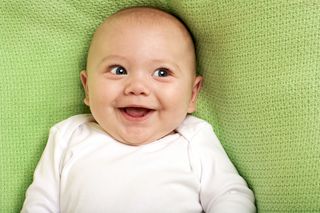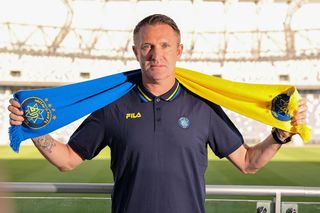‘It’s not good news’ – Síle Seoige opens up on her pregnancy loss, and says women need to talk about miscarriage
Síle Seoige’s new documentary is lifting the veil of secrecy around miscarriage. Here, she talks about her own two devastating losses and the guilt she felt about them; the double standards that still exist in broadcasting, and how getting cancer brought so many positives into her life


Of all the topics I imagined Síle Seoige and I bonding over, I could not have predicted that one of them would be primal scream. No, not the band (although a shared love of Movin’ On Up would have been left-field enough for further discussion) but rather the eloquence in screaming. Letting out negativity by, well, wailing like a banshee.
Síle, it transpires, has fond memories of screaming at the water’s edge in her youth. “I was reared by the sea and I remember as a teenager, when I was troubled or something would bother me, I would go down and I’d stand on the shore and I would f**king scream and let it out,” she says.
She was recently leading a chant circle (more of that later) when the urge to scream came again. “I don’t know where it came from with me, but it was so liberating. I hadn’t screamed like that since I was a teenager,” she says, laughing. “But as a teenager, I knew it was good for me. I used to walk home lighter, feeling better. Walking down to the beach and just screaming at the waves used to help me purge whatever crap I was feeling.”
She’s a little concerned that the banshee stuff is making her sound too ‘out there’ for this conversation, but with so many of us being in a heightened state of emotional turmoil lately, I feel that we’d probably all benefit from having a weekly cathartic scream. A ‘midweek shriek’ perhaps. “I love it!” laughs Síle. “Cathartic is exactly the word.”
Síle Seoige (Photo: Evan Doherty)
The screaming (even the swearing) might seem at odds with the poised, smiling and bubbly persona many will associate with the broadcaster. But letting go of negativity, and knowing when it’s time to give voice to hidden pain, is something the 41-year-old knows a bit about. This month sees her documentary, Síle Seoige: Deireadh Tochta, broadcast on TG4. In the one-hour programme, Síle talks to experts and Irish women about miscarriage — something she’s had first-hand experience of.
After a healthy pregnancy, that saw her give birth to son Cathal (now three) Síle and her fiancé, Damien O’Farrell, had two miscarriages. In the sadness and devastation of loss, Síle found that guilt was quick to surface.
“I remember hearing those words, ‘It’s not good news’ — and they were the exact same words both times — and straight away I was thinking, oh shit, did I have an extra coffee? Did I do exercise that day and I shouldn’t have? I instantly started to replay all these situations in my head going, what did I do? I must have done something wrong.”
But of course, there often is no reason. Certainly no blame. Síle had gone for a seven-week scan during her second pregnancy when it was revealed there was no heartbeat. “I hadn’t heard the term ‘missed miscarriage’ before,” she explains. “My body still thought I was pregnant, and was still producing pregnancy hormones, so I wasn’t miscarrying in the way you might expect — I wasn’t bleeding, but the baby had stopped growing.”
Read more
She had a D&C — a surgical procedure — rather than a prolonged wait to see if eventually her body would miscarry naturally.
“The next time, I went in for a scan at seven weeks and saw the heartbeat and it was a strong heart-beat,” she says, “I thought brilliant!. Everything was looking good, bloods were looking good. I went off and came back for the nine-week scan... and baby’s heart had stopped beating.”
On the second pregnancy she says she was “naive”. After a healthy pregnancy with Cathal, something going wrong simply wasn’t on her radar. “They were both hard,” she says quietly. “But I found the second miscarriage harder to take because we’d seen the heartbeat and I was starting to get my hopes up thinking, OK, this is good, we’re going to be OK this time.”
She had a second D&C, and remembers the compassion and kindness of the staff at the Coombe as a moment of light and love in the darkness of an awful situation. Again, guilt threatened to bubble to the surface.
“I knew how destructive it was, so second time around I went, ‘OK, I have to do something’. I was washing my hands at the sink and I looked into my eyes in the mirror and said, ‘this was not your fault’ and I kept saying it as the tears were streaming down my face.
“I just kept saying it — ‘this was not your fault, this was not your fault’, until I started to believe it. But, my God, was it hard. I really worked on that, and feeding myself with positivity, because it’s horrible to go through it. Guilt, coupled with everything else you’re going through, only makes it worse.”
She’s hugely hopeful that the new documentary will help lift the veil of silence that still persists around miscarriage. The programme contains a wealth of personal experiences — including Rosanna Davison’s harrowing history of 14 miscarriages — as well as expert advice and insight. Incredibly, given the fact that miscarriage will affect one in four pregnant women, Síle says that this is the first time it’s been tackled in this way on screen in Ireland.
“This is where TG4 excel and why I have such respect for them as a station,” says Síle. “From the beginning, their tag line was ‘Súil Eile’ which means ‘another perspective’ and they’ve always been ballsy in terms of tackling issues that maybe other broadcasters wouldn’t.”
Sile Seoige photographed by Evan Doherty. Dress, Rebecca Vallance, Brown Thomas.
It was on TG4, then T na G, that Síle first appeared on our screens, aged 19, presenting film show, Hollywood Anocht. Raised in Spiddal, Co Galway, the bilingual presenter was at first best known as the younger sister of presenter Gráinne Seoige, before becoming a household name in her own right, fronting a multitude of TV shows and then her own radio show, Shenanigans with Síle, on Newstalk from 2010 to 2013.
Some early coverage of the Gaeilgeoir’s career makes for uncomfortable reading. Her looks quickly became fodder for headlines like ‘TV Phwoar!’ while her ascending star often saw her framed as competition for other female hosts in a ‘Battle of the Babes’.
“It’s outrageous the stuff that was written,” sighs Síle. The idea of warring with other women was particularly galling. “I have so many pals in the industry and the majority are women,” she says. “I’m a girls’ girl and I’ll always try and champion another woman and support her, because I bloody know, as a woman 23 years working in the media industry in Ireland, it is tougher for a woman. It is harder to get the recognition you deserve, even when it comes to being paid.”
She pauses, and laughingly warns me that I’ve opened Pandora’s Box with this topic. “I just think there are fantastic women in the media in this country and I think we should support each other. Because we are already starting off at a disadvantage. We get judged on our looks and what we wear. Fellas can rock up in a pair of jeans and an oul shirt and they’re grand. We, as women, have to be dolled up and if you’re not, and it’s not up to scratch? You will be torn down.”
“I do think it’s changing, thankfully,” she adds. “But back in the day, the constant comparisons, the constant ‘babes’ thing... and yeah, it’s harmless and it’s grand...but if I was Séamus Seoige or Seán Seoige, would I be judged on my looks? I don’t think so.”
When we talk, the tragic death of Sarah Everard is dominating the headlines and, like many women, the case has resonated deeply with Síle.
“How many times have I said, ‘text me when you’re home’ or ‘don’t go down that way’? Memories came flooding back and I think we all feel this deep ache, because it could have been any one of us.”
She was struck by a meme doing the rounds where the words ‘Protect Your Daughter’ are replaced with ‘Educate Your Son’. “That’s the point we need to make as well,” she continues. “Doing things ‘right’ [as a woman] shouldn’t be the bloody point. We need to re-educate society and communicate to boys at a young age, and girls too, that this is something that really needs to change.”
As the mum of a boy, even one aged three, she feels this responsibility. “As a woman and as a mother, I have a responsibility to empower my son and educate him. I’m obviously going to make mistakes but I want to try and do my best and lead with my heart.”
Last year, as the Black Lives Matter movement came to prominence, she started questioning how diversity was reflected in even simple ways. “I went to look at all the books I had for Cathal and questioned, am I addressing the culture and life in which we live? And the majority of the books were white kids so I thought, OK, we need to remedy this.”
She’s quick to clarify that she knows this is just a small step. “I’m not trying to say, I’m great. I’m flawed and I’m trying. I think it’s that classic phrase: when we know better, we do better. Open your eyes, open your ears, open your heart and take it in. Because if people are in pain or suffering for whatever reason, be it race or gender inequality, we all as a society, just in terms of being a decent human being, need to do a bit better.”
Sile Seoige photographed by Evan Doherty. Dress, fee G, Serena Boutique
Síle talks a mile a minute, particularly when she’s passionate about a subject, leaving sentences half finished as she plunges eagerly into the next thought. She’s articulate and engaged, qualities that have stood her in good stead with her the podcast, Ready To Be Real, that she has been presenting since 2019.
The episodes are an eclectic mix of celebrity chats — she’s just recorded one with Imelda May — personal stories of resilience, and topic-based features. “I know I’m barely coming up for air today,” she laughs, “but on the podcast I love ones where I barely talk at all.”
It is 100pc her endeavour. “I’m a one-woman show. In TV or radio, you work with a producer and a research team, and that’s great, but for this, it’s just me.” Though she now has sponsors on board, part of the reason for the initial set-up was financial. “For a long time it was at a cost to myself and I simply couldn’t afford to employ anybody to work with me.”
Does she prefer podcasting to TV and radio? “I love it,” she replies, diplomatically avoiding the word ‘prefer’. “I love the freedom. When I was in telly or radio, you always have to be so careful, wondering, oh, am I crossing a line here? It’s so liberating not to have the guest have to censor themselves or to censor me either.”
She adds: “My only regret — and I’m not a believer in regrets — is that I didn’t do it sooner, because I’d been talking about it for years, but the old imposter syndrome was holding me back from biting the bullet.”
Imposter syndrome? Surely someone who has been in the business this long can’t have imposter syndrome? “Oh my goodness, yes,” she replies. “I probably have it stronger than most people.”
Taking the leap of faith to put her own voice out there, on her terms, has been the product of a long process of personal growth, one that started with being diagnosed with thyroid cancer 10 years ago.
“That really woke me up and shook up my life forever,” says Síle. At the time she felt fear, but now she says she’s “glad” it happened. “It just brought so many positives into my life and allowed me to cut through layers of bullshit in my own life, what was important and what wasn’t. It changed so much.”
Life certainly changed. As she inched towards the end of cancer treatment, her relationship ended. “I was still trying to recover from this physical illness that was impacting every other area of my thoughts and emotions, and then I had a bloody break-up to deal with as well!” she laughs wryly.
“Then, not long after that, I was also let go from my job. That’s the nature of the freelance world but because of the other stuff, it was... intense. I was like, Ok universe — what are you trying to say to me? I was on my knees and I knew something had to give.”
When so much changes in life there is, she says, a natural response to want to pull the duvet over the head and fell sorry for yourself. “But sometimes being the victim, if it continues, it’s really destructive.”
Instead she embraced what she now calls her Eat Pray Love years: training as a yoga teacher, exploring the benefits of meditation and chant. “A load of what, in some people’s eyes, might be considered fairly wacky stuff,” she laughs, “but I feel that if it benefits your life then the evidence is in how you feel.”
Sile Seoige photographed by Evan Doherty. Dress, Rebecca Vallance, Brown Thomas.
And she’s feeling good. Lockdown as been a mix of “tough and brilliant”. There have been the small realisations, that she can wax and tint her own brows, and big ones around perspective and gratitude.
A wedding is still on the cards for her and Damien, a garda, but for now the couple have decided to focus again on building their family. There was a year between the two missed miscarriages. “That’s not because we were trying and weren’t successful, I just wasn’t ready to try. I needed to heal.”
Now, thanks in part to her work on the documentary, she feels she’s ready. “It’s allowed me to process my own grief and get to a place where I’m ready to try again and that’s literally where I’m at now. We’re hopeful that this year we’ll be lucky and I’ll be pregnant and hopefully it’ll work out.” If it doesn’t, well, that’s OK too.
She hopes that her own openness on the subject will help get others talking. “I think historically as women we were told to keep quiet,” she muses. “You certainly didn’t talk about reproductive issues — periods, pregnancy, miscarriage — and we should talk about it! I think we become the product of our environment and upbringing, and a lot of the time it’s about un-learning crap that we’ve been taught from an early age that has not served us well.
“When I got thyroid cancer, it was a huge wake-up call because I was told I may lose my voice because of the size of the tumour sitting on my vocal chords. I think there was a message in that for me and it was — was I speaking up for myself? Was being authentic in my life? Was I using my voice? Was I speaking my truth? And I don’t think I was, pre-cancer. I think I found my voice through nearly losing it.”
‘Síle Seoige: DeireadhTochta’ is scheduled to air on TG4 at 9.30pm on April 7, 2021
Join the Irish Independent WhatsApp channel
Stay up to date with all the latest news


















